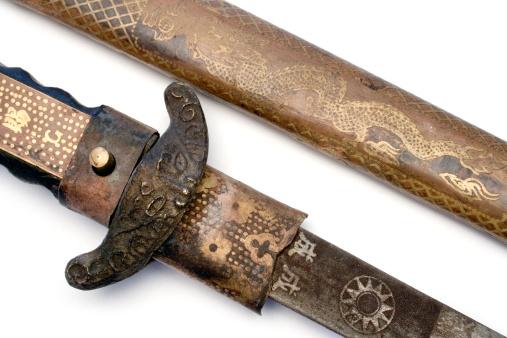The Chinese idiom 投筆從戎 (tóu bǐ cóng róng) is related to the story of Ban Chao, the renowned general of the Eastern Han Dynasty. The idiom means to “throw aside the writing brush [pen] and join the army,” or to renounce the pen for the sword.
According to the “Biography of Ban Chao” in the Book of the Later Han (“後漢書·班超傳”), the origin of the idiom chronicles how Ban Chao decided his career path.
Ban Chao was born into a family of imperial historians. His father, Ban Biao, his older brother, Ban Gu, and his sister, Ban Zhao, were all historians. Ban Biao started the famous historical masterpiece, the “Book of Han,” and Ban Gu and Ban Zhao finished it.
Initially, Ban Chao followed in the family tradition, and started out as a transcriber for the government. However, he felt that his true calling was not the work done with a brush pen, but something greater and far away.
One day, he became so frustrated with the tedious transcription work that he stopped writing, abruptly stood up, threw his brush pen away, and exclaimed, “A real man should follow in the footsteps of Zhang Qian and Fu Jiezi (two important Western Han officials who facilitated the expansion of the Han territory) to achieve great success on the frontier!
“I cannot waste any more time on this trivial writing.”
Ban Chao then joined the military and launched into a successful career as a general and, later, as a diplomat of the Eastern Han Dynasty. Indeed, he became one of the most famous military strategists of his time.
This story of Ban Chao’s life-changing decision was summarized into the four characters 投筆從戎, throw away the pen and take up the sword. The idiom is still used today to describe literati, intellectuals, or students who change careers and join the military to serve the country, especially during times of war.




